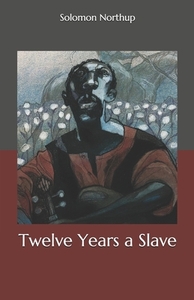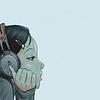Take a photo of a barcode or cover
emotional
informative
sad
medium-paced
After reading this book, I had to look up on wikipedia to make sure that the author was the main character. And, that was indeed the case, it was written from Solomon Northrup's memoirs at that time. This book really had great insight into the time period, and I am afraid to write anything more in account of being a spoiler alert. However, I did really resonate with his line at the end, when he was describing his wife, children, etc and he said, "I draw a scene that can be better imagined than described" and I imagine that is very true, as with a lot of things.
challenging
dark
emotional
hopeful
informative
inspiring
reflective
sad
medium-paced
To tell such a harrowing story with such dignity is remarkable. This book is almost impossible to put down once picked up.
I've read a number of fictional or semi-fictional accounts of slavery in the American South, such as in Roots, Someone Knows My Name, and Uncle Tom's Cabin, but this was the only firsthand account I've read, not surprising given the widespread ban on education for most slaves. It primarily served for me to validate the accuracy of the other depictions I'd read. Because of the rarity of firsthand accounts, it seemed that Northup felt he had a duty to record his experiences as an educated freeman captured and forced into slavery for 12 years, and I gathered that his audience was his fellow Northerners who didn't know much about what life for the Southern slave was actually like.. Because of this, the story is told in a rather objective tone, recounting a series of facts and events, and sharing very little about Northup's own feelings and thoughts during his bondage. At times it seemed almost as if Northup had voluntarily undertaken an anthropological missions, explaining at length what "the slave" is like and what "the slave" enjoys doing. And he tells the reader more details about the fish catcher he built than about most of the individuals with whom he lived for a decade.
From a historical perspective, I appreciate what this book was intended to do, and it was valuable to see that, at least based on Northup's experience, the fictional accounts I've read were not too far off. It just wasn't as compelling as I expected in and of itself.
From a historical perspective, I appreciate what this book was intended to do, and it was valuable to see that, at least based on Northup's experience, the fictional accounts I've read were not too far off. It just wasn't as compelling as I expected in and of itself.
challenging
dark
informative
slow-paced
challenging
dark
emotional
hopeful
informative
inspiring
reflective
sad
tense
medium-paced
This is an important book, and I'm glad I read it. I'm choosing 3 stars over 4 because it took me so long to finish, and I found some passages to be too drawn out. The movie was good too, and there weren't many major changes from text to film. I'm kind of saddened and surprised that I didn't know Northup's story until the film came out. I think teaching excerpts from his narrative would be a nice fit in high school English or History classes.
dark
emotional
hopeful
informative
reflective
sad
medium-paced
12 Years a Slave is a harrowing and necessary read, not just as a historical account but as a reflection of how far we have—or haven’t—come as a society. Solomon Northup’s story is devastating in its injustice: a free man, living his life, with no reason to believe he could be kidnapped and sold into slavery, yet he was. The weight of that reality is hard to absorb, but what makes it even more difficult is realizing how much of this country’s foundation was built on stories like his—and how echoes of that injustice still shape our world today.
Reading this book now, at a time when it often feels like we are moving backward rather than forward, is both painful and urgent. It forces us to ask: What are we willing to see, and what are we turning away from? Northup’s experience reminds us that oppression thrives when people look the other way, and while slavery in its original form is gone, systemic inequality, racial injustice, and the dehumanization of Black lives persist. We can choose to ignore that truth, or we can name it for what it is. 12 Years a Slave leaves no room for denial—it demands that we look history in the eye and recognize the ways it still lives among us.







